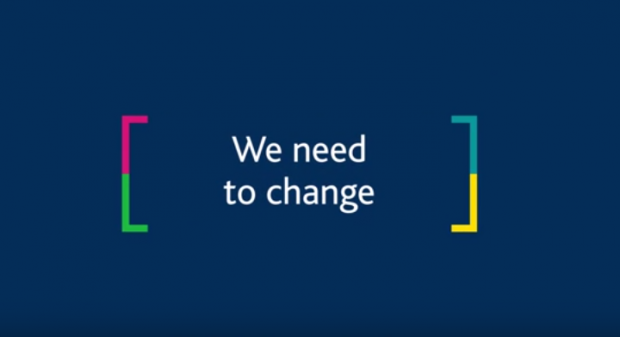This was originally posted on the Government technology blog. It’s been slightly edited here.

Recently a small group of technology leaders from across government gathered for an informal event to discuss the role that we play in developing user-centric services and their impact on wider society. It was one of a series of events we’re hosting as we refresh the cross-government Technology Leaders network, and experiment with different types of events to strengthen the community.
‘We’re all customers’
We kicked off the discussion with some short talks. Kevin Gallagher, Digital Change Director at HM Courts and Tribunal Service (HMCTS), talked about the work HMCTS is doing to transform the justice system to improve citizens experience. As Kevin pointed out ‘we’re all customers of the justice system as we all rely on it working’ and he showed a video that they’re using internally to communicate the huge importance of the work they’re doing and keep staff focused on the core principles.
Representatives from the event organisers Gartner then spoke about best practice from around the globe. They emphasised the importance of trust in the use of data to allow government to use it effectively. Creating a wider ecosystem will allow for better opportunities for citizens, creating one central place they can approach for help with jobs, accommodation, health care and more.
I wrapped up the talks with a brief overview of the work I’d seen on a recent visit to the Indian government. The roll out of India’s biometric identity programme is impressive and we can learn a lot about how they delivered effectively at such a huge scale, but the idea of building trust between citizens and government with successful delivery of high quality services had been a recurring theme.
‘We will do most of these things just once in our lives’
With this session we wanted to give colleagues a chance to think outside the day-to-day pressures of delivering specific programmes, and so, following these talks we discussed some of the broader responsibilities that come with influential positions and what we can do.
Citizens don’t choose to use government services, it’s a necessity. Often those services are only needed in times of hardship. And many services are things you will only do once in a lifetime, such as reporting a relative’s death. We have a responsibility to make sure that we make using those services as efficient and pain free as possible.
A common theme across all our work has been the need to be able to provide services across (and sometimes in spite of) existing organisational boundaries. Citizens don’t care whether they are talking to HM Revenue and Customs (HMRC), Department for Work and Pensions (DWP) or Ministry of Justice (MoJ). They just want or need to use a service. The same information shouldn’t need to be given multiple times to different places, you should be able to provide it once and all relevant parties are informed.
We’ve got a lot of work to do to be able to do that smoothly but an interesting theme was the idea of the ‘invisible department’. If we’re successful in this how do we ensure that we still make our internal working sufficiently transparent that we can easily be held to account?
That only gets more important as we think about the opportunities to automate large parts of existing processes. We’ve barely begun to scratch the surface of connecting up the experience of services with democratic roles in influencing them and there’s space for a lot more thinking and experimentation there.
‘The most rewarding work is when I’ve seen a positive impact on citizens’
Another big theme we discussed was the idea of openness being key to trust. Without visibility of data, citizens can’t actively contribute to conversations or have an informed opinion. The more data that we publish and make available, the more interesting and useful debates can occur.
The group did note that data can be interpreted differently which means there is a risk that information can be cherry picked and used to create a false narrative. The agreement in the room was that it’s best to share everything and allow those conversations to take place.
We also touched on the ongoing public debate about how we supply, protect and use personal information. We’ve begun to hear from commercial companies who are looking to government to provide refreshed guidelines on the use of data in order to focus the public conversation.
It’s important that government is careful to reach a balance between being a practitioner, policy maker and regulator. We need to think carefully about this balance and as we change the skills profile within government there are big new opportunities to bring those roles closer together. As the perceived pace of change and innovation increases, that just becomes more important.
Currently the trust issue between the citizen and the state is one of the biggest challanges around the use of certain future technologies, such as machine learning, and we need to make use of the growing expertise and experiments happening within government to ground those conversations.